Content Marketing In Digital Marketing : Strategies, Benefits
and Essential Tools
Table of Contents
Content marketing is a staple element of digital marketing. It involves planning, creating, sharing, and publishing content to expand business leads and revenue.
Understanding Content Marketing
Content marketing promotes visual or textual content on digital platforms to attract customers. These contents include texts, videos, ebooks, print publications, and press releases.
It is similar to advertising but with a twist. Content marketing strategies promote content through various formats like videos, pictures, informational posts, pop-up ads, social media posts, and email newsletters.
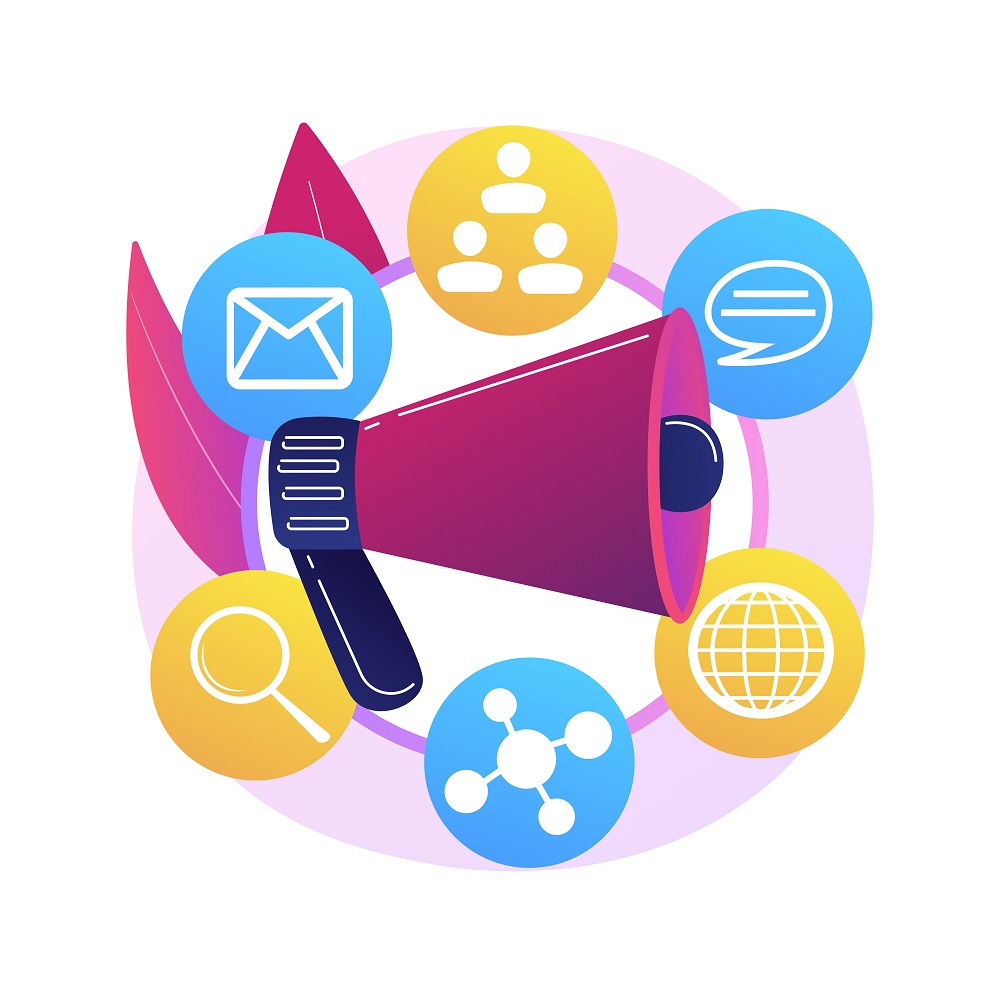
An effective content marketing strategy includes five key principles :
- Understanding the audience.
- Finding the ideal marketing platform.
- Creating relevant content.
- Creating quality content.
- Maintaining consistency
Planning content marketing strategies based on these aspects ensures effectiveness. Now, how exactly does content marketing in digital marketing differ from traditional marketing ?
Content Marketing vs Traditional Marketing
While both aim to promote products, digital content marketing uses online networks to distribute content efficiently. Traditional marketing, used before the internet, relies on print publications, newspapers, magazines, banners, and posters. Traditional marketing is still relevant but costlier due to printing and distribution expenses.
Role of Content Marketing in Digital Marketing
Content marketing is integral to digital marketing, serving purposes such as :
- Expanding reach through various communication networks.
- Building brand awareness effectively.
- Establishing trust with quality content.
- Improving SEO by optimizing website content.
- Generating business leads by aligning content with audience needs.
- Enhancing customer loyalty through engaging strategies. engaging strategies.
Key Components of a Successful Content Marketing Strategy
Engaging Content
Presentation styles like entertainment elements make content compelling. It also compels the customer to make an active consideration of the product or service from the content.
Ideal Platform
Choosing the right platform depends on goals and audience behavior. Based on the content type and audience behavior, various online platforms and social networking sites are extensively used for content marketing purposes.
Understanding Target Audience
Knowing audience pain points helps improve strategies. This helps to implement further content marketing strategies and eventually helps audience conversion.
Content Quality
High-quality content builds credibility and expertise. Strong quality contents give an authoritarian outlook, creating a sense of expertise in the topic. The authenticity of the content is much valued by the audience.
Consistency
Regular publishing ensures audience engagement and brand trust. Consistency is a relevant factor, especially during the early stages of brand growth.
Tracking Performance
Monitoring content impact using tools like Semrush and Hootsuite enhances effectiveness. Performance tracking is important and helpful if you are experimenting with a special strategy. It helps to emphasize crucial factors that are necessary for better performance.
Types of Content Marketing
Let’s explore the types of content marketing and the mainstream online platforms associated with them :
Infographic content marketing
Infographic content is one of the best methods to market your content due to its highly engaging nature. Mainly used to simplify complex concepts or educational topics. The most significant feature of infographic content is the graphical elements and capsule format texts. It helps to convey the content more effectively by eliminating the need for a proper reading attempt.

- Based on studies, including infographics content can boost site traffic by 12%.
- Infographics are 30% more likely to be read when compared to text-based content.
Ideal platform : infographic content can be marketed across any platform.
Blog
Blog, in digital marketing, is used as an inbound content strategy method. It is ideal to implement SEO strategies on blog pages to boost traffic to the site. Additionally, blogs contents are used to increase the SERP ranking of the site. Blog links can be promoted across various online platforms.

- Popular studies show that companies with blogs produce 67% additional leads than those without blogs.
- 91% of B2B and 86% of B2C companies utilize blog posts as a part of digital content marketing.
Ideal platform : Blogger, WordPress, Medium.
Podcasts
Podcast content marketing has emerged recently and is becoming one of the mainstream content marketing strategies. Mainly centered on informative topics, podcasts are presented both as audio and video episodes. Podcast content marketing helps to establish authority over the content.

- It has been estimated that 81% of podcast audiences engage with podcast advertisements.
- Podcasts can produce impressive ROI. The average ROI for podcasts is 4.9.
Ideal platform : Spotify, Apple Music, YouTube
Social media marketing
Social media marketing is an essential part of digital content marketing. Social media platforms like Meta, Instagram, Snapchat, X(formerly Twitter), and Reddit are ideal for reaching a broad audience. Social media marketing is done through Content like images, pre-recorded videos, and short video snippets.
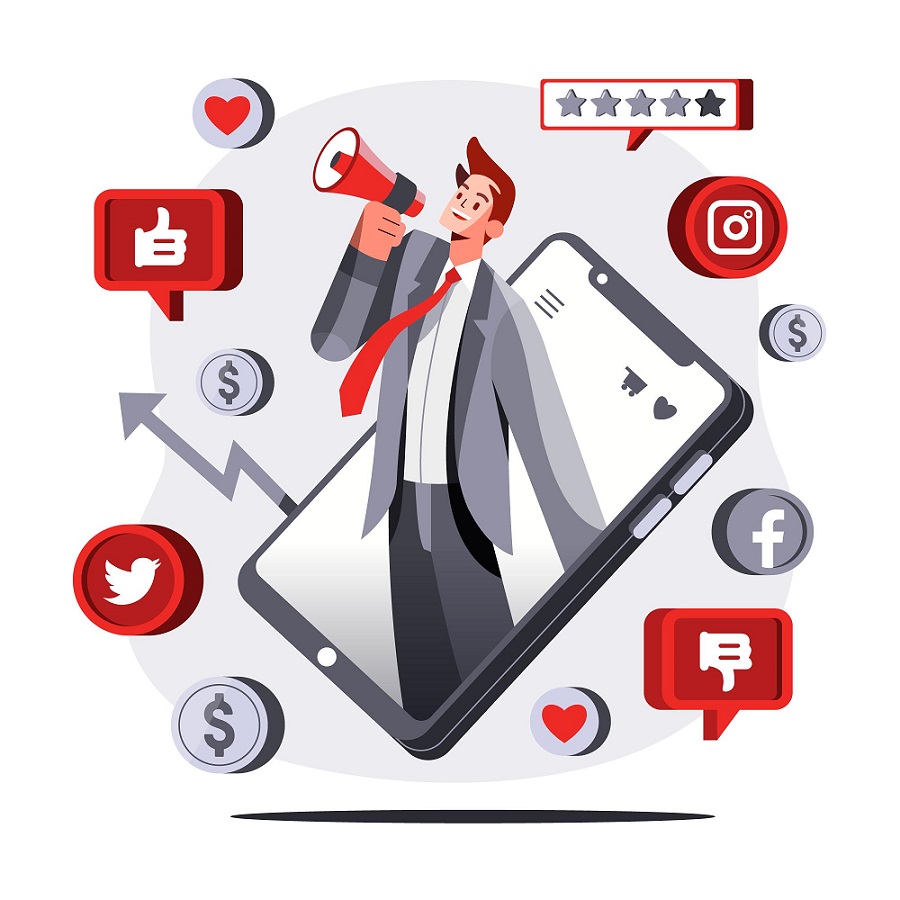
- As of January 2025, 5.24 billion people use social media, covering 63.9% of the global population.
- Around 87% of B2B firms use social media marketing.
- With a 700 billion turnover, online sales through social media constitute 19.4% of global online sales.
Ideal platform : Meta, Instagram, WhatsApp, Reddit, X(formerly Twitter)
Email newsletters
Popular statistics suggest that email newsletters have been the most successful content marketing strategy in the past years. Email newsletters are used to foster customer engagement with the site and to drive the customer to do the desired action.

- In the year 2024, 71% of B2B companies have used email newsletters as a content marketing strategy.
- Email newsletters produce high ROI that is, for every 1$ spent, the average return from email newsletters would be 36$.
Memes
Due to their increasing popularity on social media, memes are being used for content marketing also. Memes are ideal to represent a concept in a humorous way using references from popular entertainment trends.

Ideal platform : Instagram, X(formerly Twitter), Snapchat, Reddit, YouTube, etc.
Benefits of Digital Content Marketing
Content marketing offers large-scale broadcasting, allowing businesses to connect globally. You can easily connect or build business relations with anyone anywhere around the globe. There are two primary approaches:
Inbound Content Marketing
In digital content marketing, inbound marketing is a method used to attract customers by focusing on valuable and quality content that drives organic searches.
For example, a detailed blog about a particular product can increase product awareness while also persuading the customer to make the purchase as well. Inbound content marketing focuses on the needs of the customer, giving more importance to its relevance.
Outbound content marketing
Outbound marketing includes strategies like cold calling, spamming, and pop-up ads come under outbound content marketing. It is executed through interruptive methods which are often considered annoying by the audience. Outbound content marketing is effective by creating diversions or manipulative methods.
How to make your content impressive for the audience ?
Contents with engaging quality and interesting visual representation can persuade the audience. The contents are presented in various formats depending on the topic and the platform. It can be infographics, blogs, podcasts, case studies, email newsletters, ebooks, videos, memes etc.
For example, Short video snippets are getting considerable attention mainly because of their effectiveness in conveying ideas in a short period. Such videos and reels are extensively used on social media platforms for content marketing purposes. These snippets are concise, informative, and practical for engaging content presentation.
Such social media trends continue to redefine the outlook of educational or informational content delivery. Digital marketing is also beneficial when it comes to:
Cost-effectiveness: Digital content marketing is highly cost-effective in terms of conventional marketing. Online marketing eliminates the need for printing and conventional distribution. Additionally, it simplifies the distribution of content while reducing the cost by 62 % less than the conventional method of marketing.
High ROI: Digital content marketing aids a high return on investments. Popular statistics results show a 4200% average ROI for digital content marketing. However, this metric is a combined return of marketing strategies like SEO, PPC, email marketing, etc.
Generally, a 5:1 ratio is devised for digital marketing ROI. That is, considering a 5-dollar return over an investment of 1 dollar.
Subscriber retention: digital content creates more impact among the audience because of the presentational elements like graphics, motion pictures, music, etc. Moreover, the customers are likely to continue their business relationship, fostering customer loyalty.
Increase conversions: Helps to encourage the audience to make the purchase. Digital marketing strategies like SEO, email campaigns, and PPC can convert the audience into active customers, thus gaining new business leads.
Top Tools For Effective Content Marketing
Many are tools available for various content marketing purposes. It is always effective to use these tools for content marketing administration and performance monitoring. Here we are going to briefly explore some of the best content marketing tools available.
Semrush
Semrush is one of the top SEO content marketing tools with extensive options to administer content marketing strategies. Semrush would be a great choice for purposes like keyword research, SERP ranking research, on-page SEO, competitor analysis, social media management, PPC keyword research, paid advertising, webpage monetization, etc.
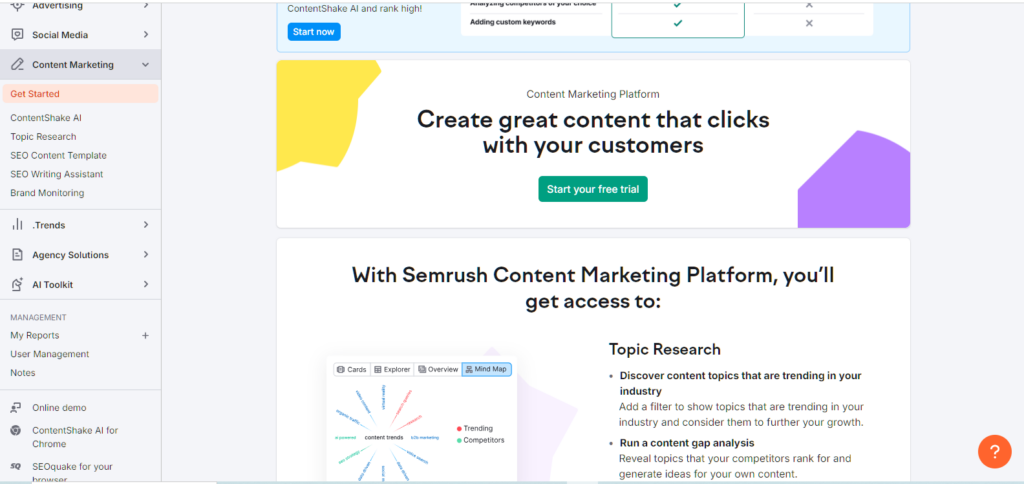
Semrush also provides AI-powered tools for SEO research and analysis. Semrush offers various subscription plans according to the requirements of the marketing scale.
Hootsuite
Hootsuite is a popular social media management tool with incredible features to plan, schedule, and analyze marketing strategies. Hootsuite lets you manage all your social media platforms from one place. It eliminates the need to create content separately for each social media platform.
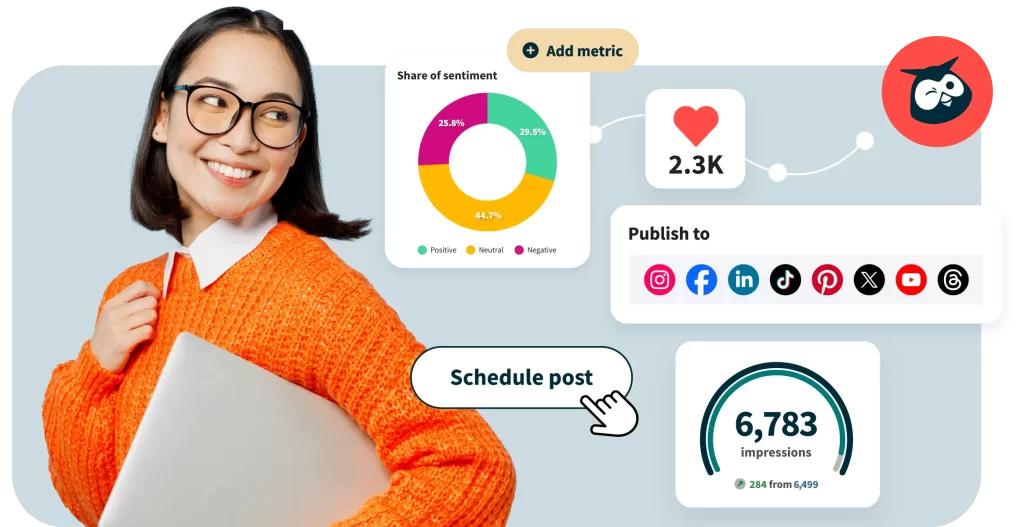
You can monitor the performance of all social media pages from a single dashboard. Additionally, it also provides various statistics and analysis reports of social media posts. Furthermore, these statistics can be sorted by social media posts, audience engagements, and clicks per country.
Canva
Canva is an essential tool for integrating graphical elements into your content marketing techniques. With innovative features for creating stunning visuals and graphics, the canvas is a beginner-friendly tool. It also provides advanced options for graphic designers for editing and generating high-quality content.
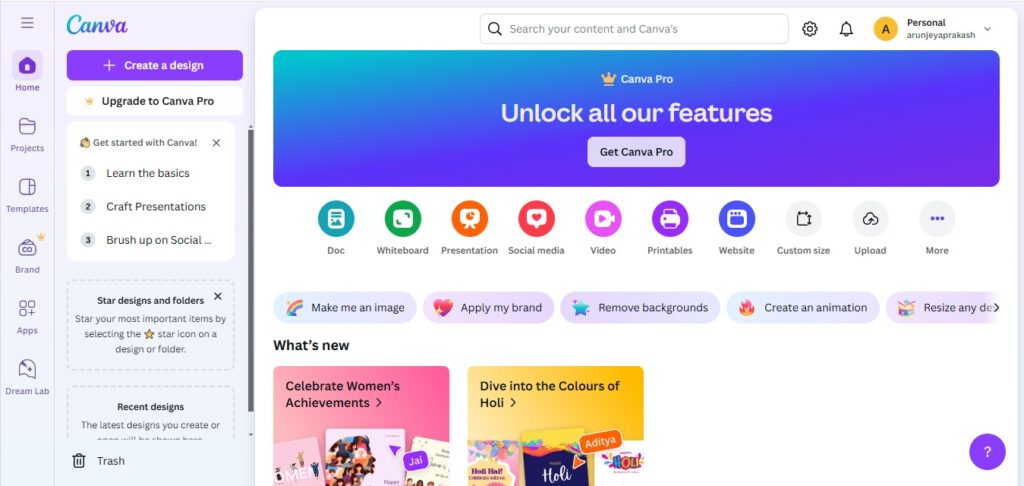
The highlight feature of Canva is the Magic Media AI tool introduced for text-prompt image generation. Such custom graphics are used to create engaging, quality content for marketing purposes.
Grammarly
Grammarly is one of the cutting-edge content marketing tools that enhances writing quality. It offers a range of features for shaping your written texts. Grammarly is handy for adjusting the tone of writing, vocabulary enhancements, grammar checking, plagiarism detection, etc.
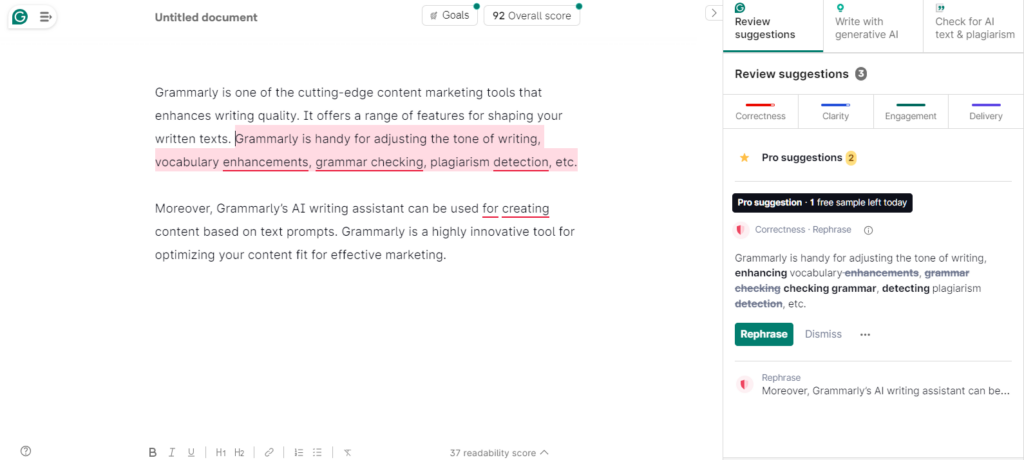
Moreover, Grammarly’s AI writing assistant can be used for creating content based on text prompts. Grammarly is a highly innovative tool for optimizing your content fit for effective marketing.
Digital content marketing is a powerful strategy that, when executed effectively, can drive rapid business growth. By leveraging AI and advanced content marketing tools, you can maximize revenue and expand your reach.
Recent Post
-
 Google Ranking Factors Explained: How the Algorithm Really WorksSEO
Google Ranking Factors Explained: How the Algorithm Really WorksSEO -
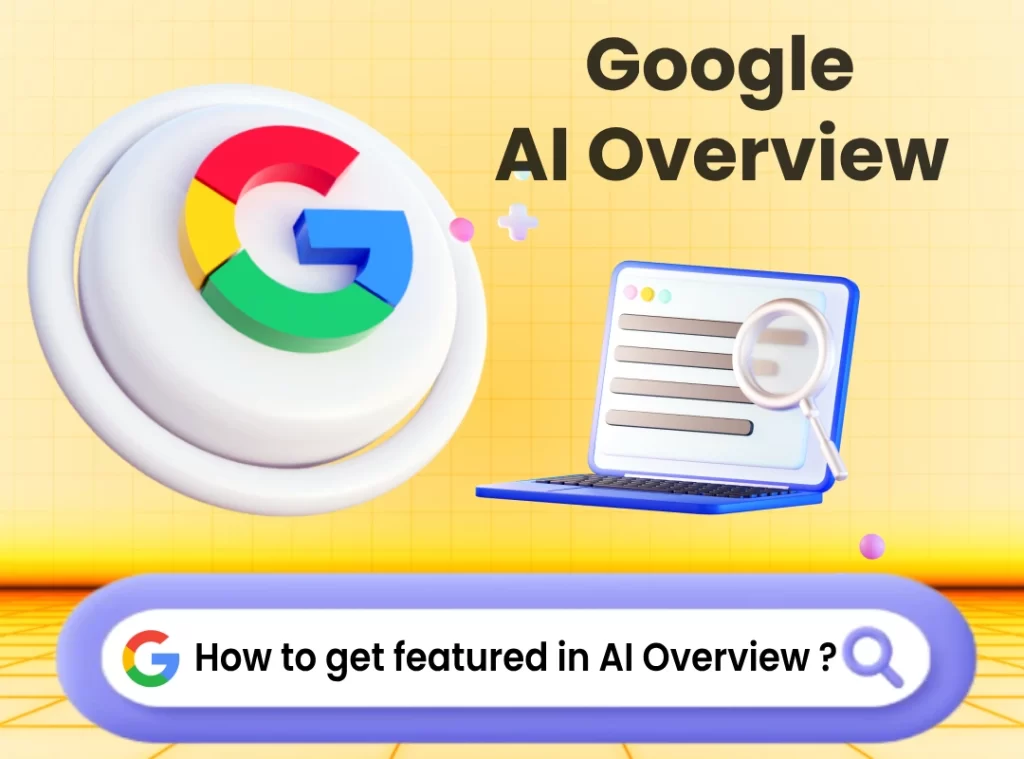 How to Get Featured in Google AI Overview (SGE): 6 Essential StrategiesSEO
How to Get Featured in Google AI Overview (SGE): 6 Essential StrategiesSEO -
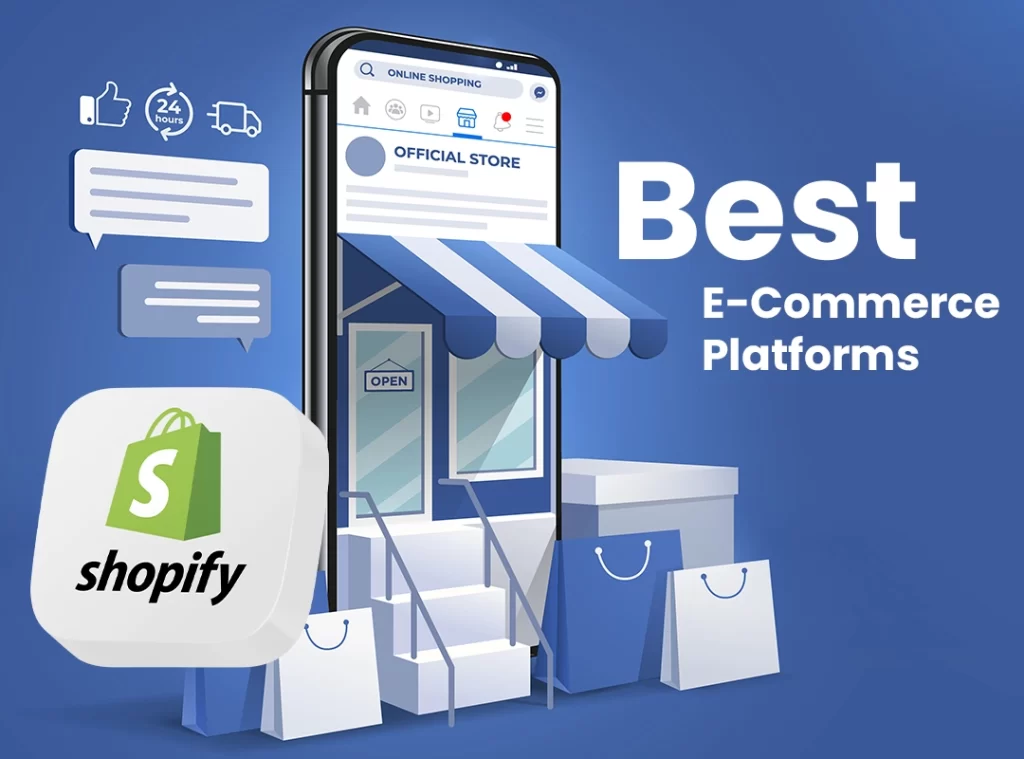 Best E-Commerce Platforms in 2025: How to Choose the Right One for Your Online StoreSEO
Best E-Commerce Platforms in 2025: How to Choose the Right One for Your Online StoreSEO -
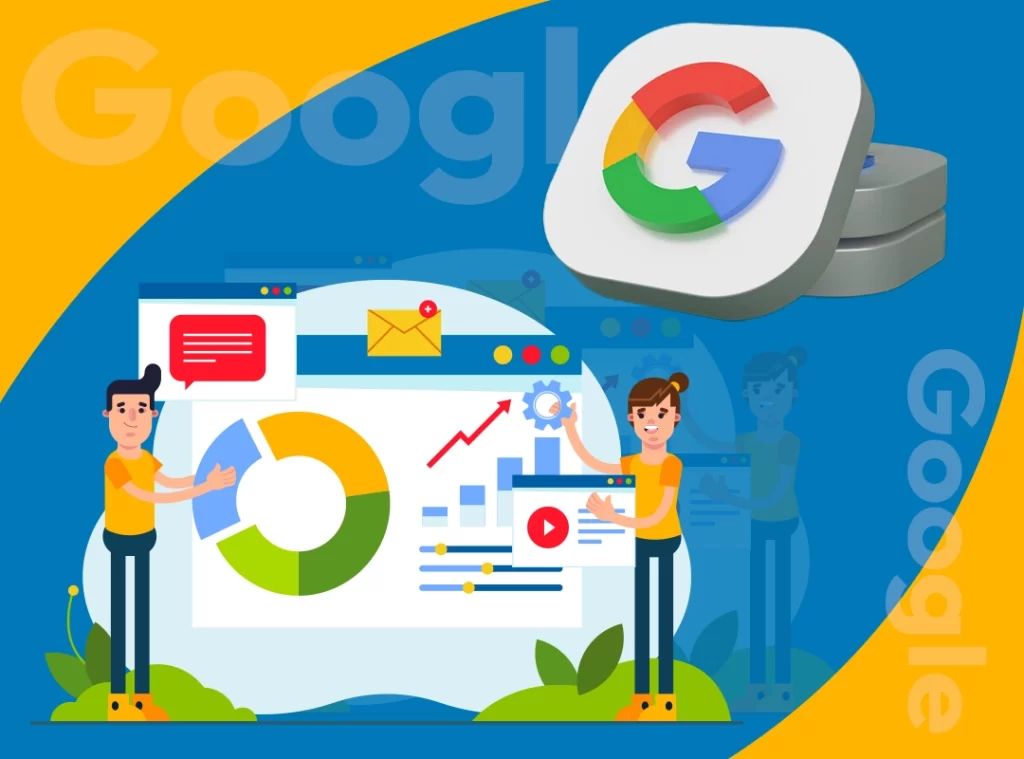 Google March 2025 Core UpdateSEO
Google March 2025 Core UpdateSEO -
 AI Image Generation for MarketingSEO
AI Image Generation for MarketingSEO

